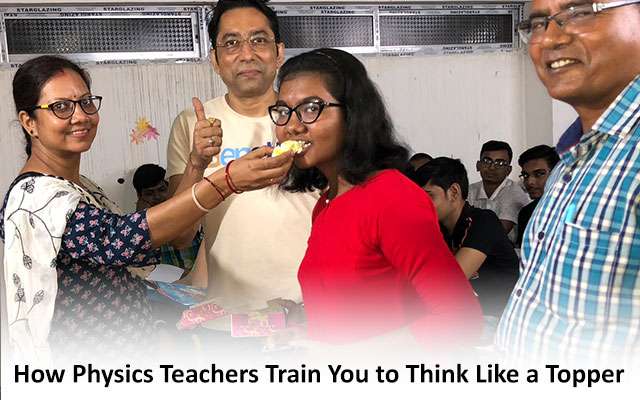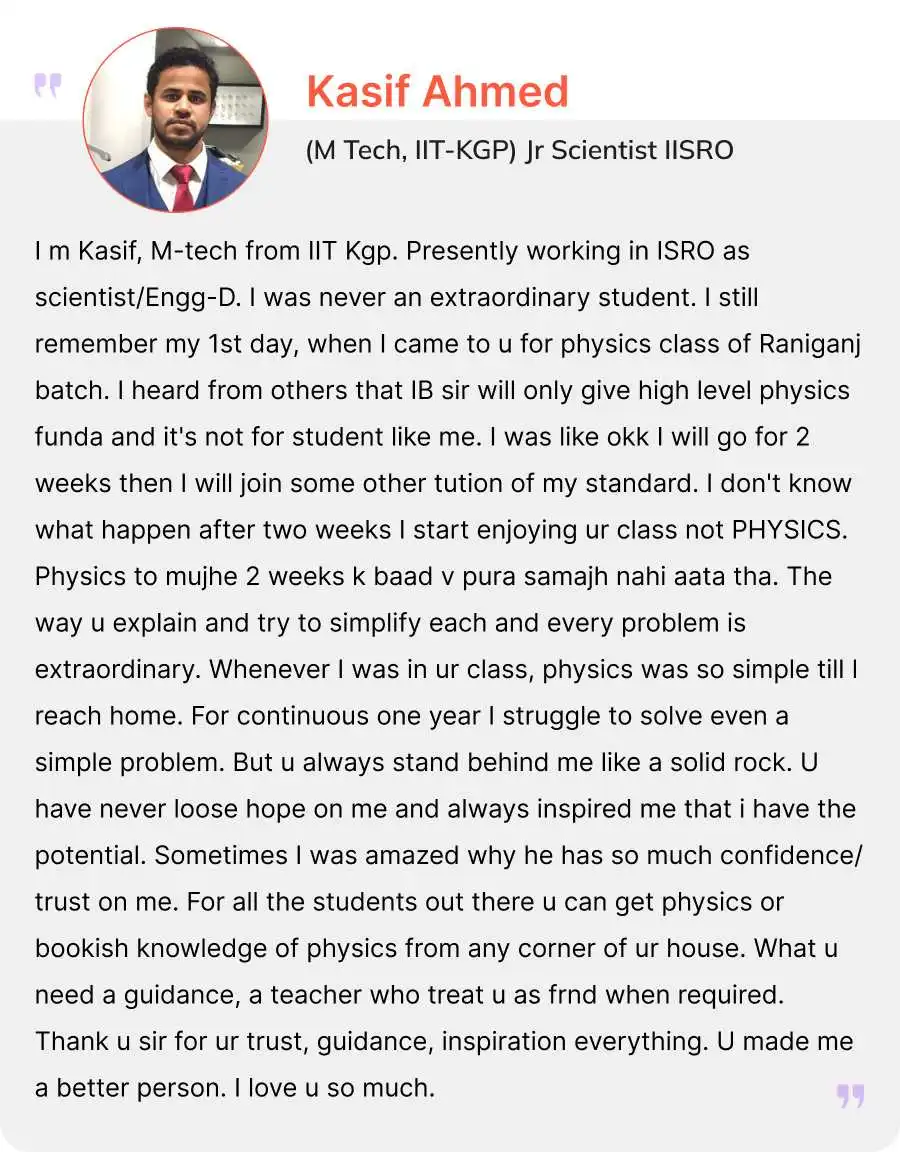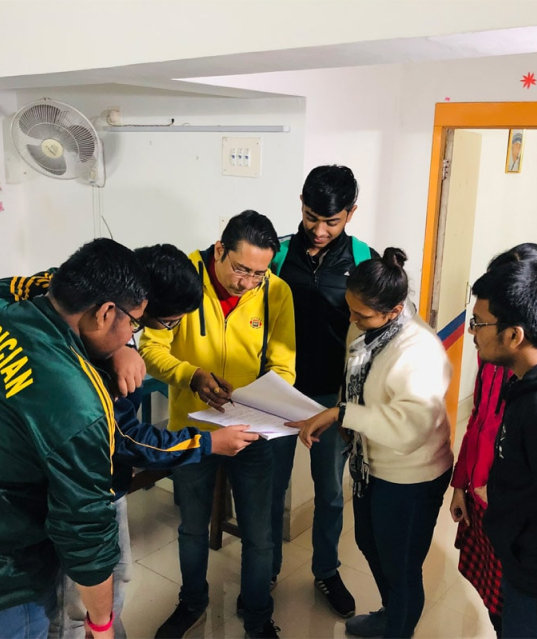Physics teachers help students improve their analytical and critical thinking skills. They connect every concept to real-world examples. By turning theory into observation, they make Physics a way of understanding.
In this blog, we’ll explore how Physics teachers build strong concepts. They help students improve problem-solving skills through a clear understanding. This approach also develops smart study habits that last a lifetime.
How Physics Teachers Strengthen the Conceptual Core of Every Student
Physics teachers ensure that students understand why something works before explaining how it works.
A good teacher ensures that students can relate the laws of motion, energy, and forces to their daily lives. When the “why” behind every law is understood, problem-solving feels natural. This is what sets toppers apart, they think, reason, and connect concepts, not just memorise them.
Each topic connects to real-world examples for better understanding. Visual aids, such as diagrams and animations, simplify complex concepts, helping students develop long-term clarity and a deeper conceptual understanding of physics.
IB Sir, the best physics teacher in Kolkata for JEE, will help to discover how logic, clarity, and real-world examples can make learning physics interesting.
Developing Effective Problem-Solving Techniques
Developing effective problem-solving techniques is the backbone of success in Physics. It’s not just about memorising formulas, it’s about knowing when and how to use them.
Here’s how teachers train toppers to approach it:
- Understand the concept first: Before jumping into equations, focus on the problem’s logic.
- Break it into smaller parts: Complex questions become manageable when solved step by step.
- Practise regularly: Daily numerical practice sharpens accuracy and speed.
- Review mistakes: Analysing errors helps avoid them in future tests.
With consistent practice, problem-solving becomes natural, precise, and faster.
Understanding Complex Problems Step by Step
Breaking down each question helps identify what’s given, what’s missing, and what’s being asked. IB Sir, use flowcharts and logical diagrams to make this process easier to visualise.
This method helps students stay organised during exams and improves both accuracy and time efficiency.
Applying Formulas and Concepts
Students learn to connect theory with practice rather than blindly applying formulas. They:
- Recognise which concept applies to the question.
- Substitute and check units carefully.
- Revise similar problems for retention.
Such consistency strengthens physics problem-solving techniques and ensures faster recall during exams.
Utilising Real-World Applications to Enhance Understanding
| Physics Concept | Real-Life Example | Learning Impact |
| Newton’s Laws | Motion of cars | Improves logical thinking |
| Refraction | Glass prism | Enhances conceptual physics understanding |
| Thermodynamics | Cooling systems | Builds curiosity |
| Electricity | Circuit boards | Encourages practical reasoning |
| Optics | Cameras and mirrors | Boosts memory through visuals |
These real-world examples create better physics study habits by encouraging observation beyond books.
Fostering Critical Thinking and Analytical Skills
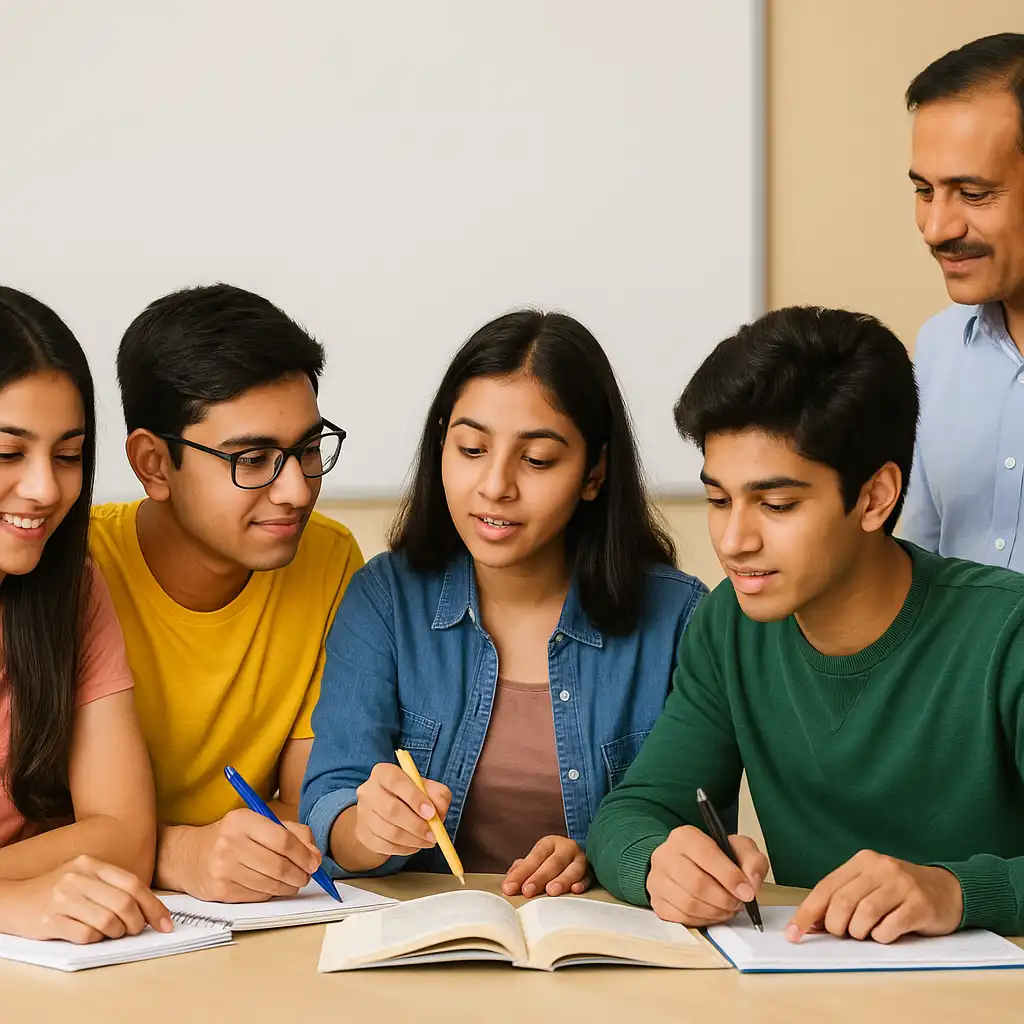
Encouraging Active Learning and Engagement
Passive reading never builds toppers. Teachers create interactive learning spaces where curiosity leads the way.
- Regular question-answer sessions after each concept.
- Discussion-based learning for deeper understanding.
- Mini quizzes and flash revisions for retention.
Collaborative Learning and Peer Discussions
Collaborative learning makes studying Physics more interactive and effective. Discussing problems with peers helps students discover new ways to approach the same concept.
Here’s why it works:
- Exchange of ideas: Different viewpoints often reveal simpler solutions.
- Clearer understanding: Explaining a topic to others strengthens one’s own grasp of it.
- Team motivation: Group studies keep students consistent and focused.
- Doubt resolution: Immediate discussions clear confusion faster than studying alone.
When students learn together, Physics becomes more enjoyable, and concepts stay in memory for longer.
Promoting Consistent Practice and Review
Learning Physics is like exercising a muscle. It grows with repetition. IB Sir insist on scheduled revision and mock tests.
- Daily short problems for focus.
- Weekly topic-wise tests for accuracy.
- Monthly mock exams to test timing and confidence.
- Virtual labs to test experiments safely.
- Online simulations to visualise reflection, refraction, and motion.
- Digital notes and recorded classes for flexible revision.
These tools enrich physics study resources and make revision smoother.
Building a Strong Foundation through Fundamental Principles
A weak foundation limits growth. Top Physics teachers focus on core topics such as motion, energy, and electromagnetism before moving on to advanced chapters.
They use this 3-step formula:
- Teach the concept simply.
- Show its real-world link.
- Test understanding through application.
This ensures lasting clarity and better physics exam preparation tips.
Cultivating a Growth Mindset for Continuous Improvement
Every topper once struggled with doubts. What set them apart was persistence. Teachers encourage students to embrace mistakes as part of the learning process.
- Focus on improvement, not perfection.
- Track progress regularly.
- Celebrate small wins during preparation.
Time Management During Exams
Speed without planning is chaos. Physics teachers train students
- Divide time
- Solve easy questions first
- Mark the tricky ones,
These physics exam preparation tips help them score.
Incorporating Technology and Interactive Tools in Learning
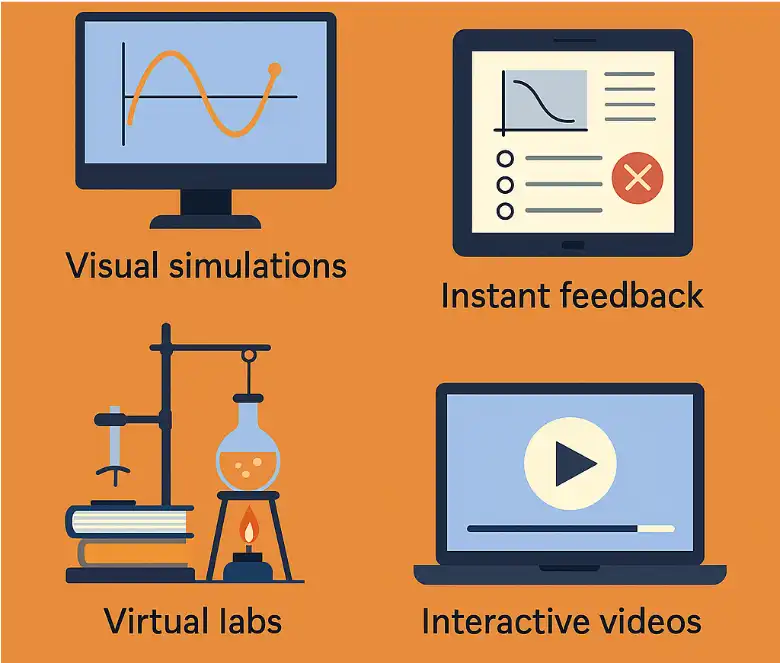
Technology has made learning Physics more visual and engaging. Interactive tools help students move beyond theory and truly understand how concepts work in real life.
Here’s how technology helps:
- Visual simulations: Digital models make it easier to grasp complex ideas such as motion and waves.
- Instant feedback: Online quizzes and apps show mistakes immediately, improving accuracy.
- Virtual labs: Students can perform experiments safely and repeat them at any time.
- Interactive videos: Visual explanations make learning faster and more interesting.
By using technology, Physics becomes more practical, accessible, and enjoyable for every learner.
Cultivating a Growth Mindset for Continuous Improvement
Every topper once struggled. What changed was their mindset. Physics teachers encourage students to view challenges as an integral part of the learning process.
They remind learners that:
- Improvement matters more than perfection.
- Tracking small wins builds confidence.
- Regular feedback turns effort into progress.
When mistakes become lessons, students develop lifelong study habits. It extends beyond exams and shapes how they solve real-world problems.
The Role of Physics Teachers in Shaping Top Performers
A good Physics teacher does more than prepare you for exams; they shape the way you think. The path from confusion to clarity begins with curiosity, patience, and practice. With the right guidance, complex laws begin to make sense, and every challenge starts to feel solvable. In the end, Physics becomes more than a subject; it becomes a way to understand how the world works.
Ready to strengthen your concepts and score like a topper?
Join Study with IB, where clarity meets confidence. Learn from the best physics teacher in Kolkata for JEE and master the art of logical, confident problem-solving.
Call +91 9474114212 for more information on the enrolling process.
People Also Ask (FAQs)
1. What is the best way to study Physics for JEE?
Start with conceptual clarity before attempting numericals. Once you understand the “why,” physics problem-solving skills come.
2. How can someone improve problem-solving speed in Physics?
Practise daily, analyse each mistake, and revise patterns. These physics problem-solving techniques make you faster and more accurate.
3. Which habits help students succeed in Physics exams?
Consistent revision, visual learning, and good physics study habits ensure success.
4. Why is critical thinking important in Physics?
It allows you to connect different chapters. It improves physics exam success strategies and performance in competitive exams.
5. How can technology improve Physics learning?
Interactive tools, simulations, and online tests build better understanding. It makes physics learning methods engaging and makes studying engaging.

